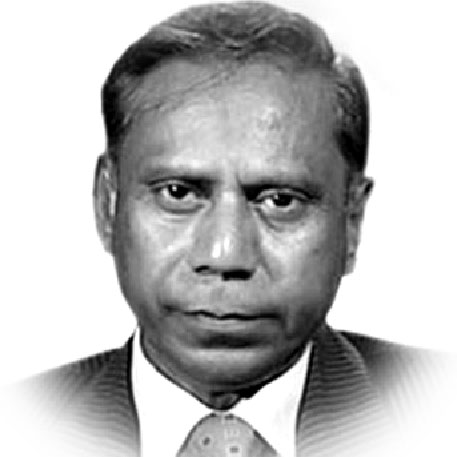Sultan M Hali
By the time this article appears in print, the issue must have been settled. Commenting on a case which is being discussed in the apex court maybe tantamount to being sub-judice, however the judiciary must be commended for having taken up an issue for resolution, which has been vague and has had deep impact on the matters of the state. The appointment/retirement of Naval and Air Chiefs has been routinely handled but the case of the Army Chief has varied. Some Army Chiefs, who had usurped power, continued to give themselves extension. The case of General Kayani is an exception where a civilian government granted extension and for a full term to an Army Chief. The circumstances were different as the civilian government of the day was embroiled in a power struggle with army because of the infamous Memogate scandal. This controversy revolves around a memorandum (addressed to Admiral Mike Mullen) ostensibly seeking help of the Obama Administration in the wake of the Osama bin Laden raid to avert a military takeover of the civilian government in Pakistan, as well as assisting in a civilian takeover of the government and military apparatus. The memo was delivered in May 2011; Mansoor Ijaz wrote a “Financial Times” article in October 2011 drawing attention to the affair.
Central actors in the plot include Pakistani-American businessman Mansoor Ijaz, who alleged that his friend and former Pakistan Ambassador to the United States, Hussain Haqqani asked him to deliver a confidential memo asking for US assistance. The memo is alleged to have been drafted by Haqqani at the behest of President of Pakistan Asif Ali Zardari and was delivered to Mike Mullen through then National Security Advisor James L. Jones.
The controversy created a furor in Pakistan, the Supreme Court took notice, and, in its wake, Hussain Haqqani had to resign his post as Ambassador. Reportedly, in a bid to silence General Kayani, he was granted an unprecedented full-term extension as Army Chief. The war on terror was cited as extraneous circumstances which necessitated the continuation in command. A group of Lieutenant Generals, who must have worked hard to reach the coveted top position on merit, must have felt disappointed, since they had to go home without the fulfilment of their dreams. The question arises here, why didn’t General Kayani groom competent officers to replace him in the top slot, even if the war on terror was persisting. It belies the claim of extending his service because of the precarious situation.
The situation now is very different. Apparently, the Army Chief and the Government are on the same page and have a clear understanding on all matters, however, the consideration of the precarious circumstances may be partially true. Surely the replacement for the current incumbent must have been prepared to replace him.
It is apparent that the judiciary did not take notice of the case to target a specific personality, but it sought to correct an anomaly to iron out the rules for the appointment of services chiefs. The institution always takes precedence over individuals. The case under consideration took cognizance of the law, the procedure involved and the grounds for granting the army chief an extension.
It has been argued that the extension of the tenure of COAS is the sole prerogative of the Government. The Prime Minister recommends while the President of Pakistan is bound to act on the advice of the Prime Minister.
This is not a case of the Judiciary impinging on the powers of the Executive or the courts setting the trend of interfering in the matters of Executive. What we have observed is settling the terms and conditions for appointing/retiring and if so necessitated, extending the term of tenure of the Service Chief.
The sad part is that the arch enemy of Pakistan, India was gloating over the observations of the Supreme Court regarding the extension of the COAS. Indian military and media have made no secret of their dislike of General Qamar Jawed Bajwa, because he looked them in the eye, called their bluff and resolved to hit them hard in case of any jingoistic adventurism on the part of India.
Pakistan is currently passing through very trying circumstances. The political dispensation in the corridors of power remains beleaguered because the opposition would like to see its back. The main reason is that serious cases of corruption are under trial involving senior politicians of the opposition parties. These political parties would like to see the cases against them dropped which is only possible if a change in government takes place prematurely. The government has survived a recent protest sit-in to dislodge it. India is on a warpath. Kashmir has been illegally annexed, and the people of the Valley remain in a state of lock down. False flag operations by India led to a failed surgical strike, but in its wake, a retaliatory attack by Pakistan resulted in the loss of two Indian fighter aircraft. An Indo-Pak armed conflict under the prevailing milieu, cannot be ruled out.
Judicial activism in the past has cost Pakistan dearly. Chief Justice Iftikhar Chaudhry’s decision on Reko Diq cost the national exchequer a fine of US Dollars Six Billion. Other Suo moto notices too were not always in the best interest but if the rules pertaining to the appointment/retirement/extension of the Services Chiefs can be clearly spelt out, it will be a service to the nation.
—The writer is retired PAF Group Captain and a TV talk show host.










